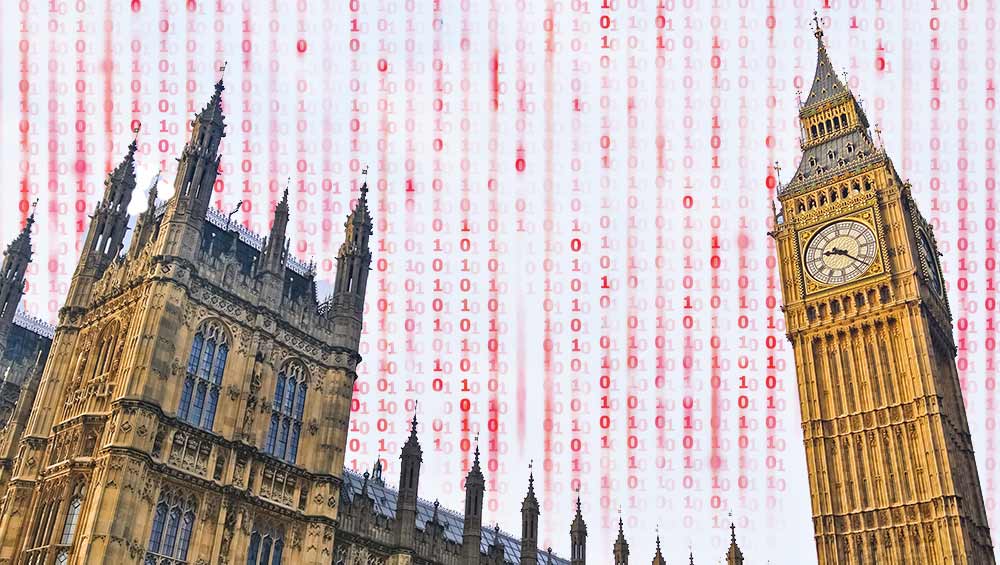Investigatory Powers Bill passes through Parliament
Now only Royal Assent is required to enshrine Snooper's Charter in UK law

The Investigatory Powers Bill is on track to becoming UK law after being approved by the House of Lords yesterday, despite facing strong opposition.
The controversial bill, also known as the Snooper's Charter, has now been passed by both houses of Parliament, and is expected to receive Royal Assent before the end of 2016.
It will force internet service providers (ISPs) to store people's web history data (known as Internet Connection Records, a list of websites you visit, but not the individual webpages you click on) for up to a year.
Spy agencies will also be granted the power to collect bulk personal datasets, including information of people not suspected of any criminal activity. They will also be permitted to undertake large scale hacking operations, though they must first obtain a warrant from the secretary of state.
It is set to become law before the end of the year, in order to replace the expiring Data Retention and Investigatory Powers Act (DRIPA), which came into force in 2014.
DRIPA was ruled unlawful by the High Court last October, which said it was incompatible with the European Human Rights Act, but the European Court of Justice subsequently issued guidance contradicting this.
While MPs and Lords have passed the Investigatory Powers Bill, privacy campaigners have railed against the would-be legislation.
Sign up today and you will receive a free copy of our Future Focus 2025 report - the leading guidance on AI, cybersecurity and other IT challenges as per 700+ senior executives
Open Rights Group executive director Jim Killock said: "The IP Bill will put into statute the powers and capabilities revealed by Snowden as well as increasing surveillance by the police and other government departments. There will continue to be a lack of privacy protections for international data sharing arrangements with the US. Parliament has also failed to address the implications of the technical integration of GCHQ and the NSA.
"While parliamentarians have failed to limit these powers, the courts may succeed. A ruling by the Court of Justice of the European Union, expected next year, may mean that parts of the bill are unlawful and need to be amended."
Julian Huppert, the former Liberal Democrat MP for Cambridge, added: "Soon, a record will be kept of every website you ever go to. That should worry you."
Privacy action group Liberty, meanwhile, appeared to threaten court action.
Policy director Bella Sankey said: "The passage of the Snooper's Charter through Parliament is a sad day for British liberty. Under the guise of counter-terrorism, the state has achieved totalitarian-style surveillance powers the most intrusive system of any democracy in human history. It has the ability to indiscriminately hack, intercept, record, and monitor the communications and internet use of the entire population.
"Liberty has fought tooth and nail against this terrifying legislation, but the paucity of political opposition has been devastating. The fight does not end here. Our message to Government: see you in court."
-
 Government 'must be held to account' over illegal Snooper's Charter
Government 'must be held to account' over illegal Snooper's CharterNews Gov should be given until April to make changes to the Investigatory Powers Act, court told
-
 UK faces challenges to bulk spying in European Court of Human Rights
UK faces challenges to bulk spying in European Court of Human RightsNews Privacy groups argue bulk data collection breaches Article 8 in landmark court case
-
 Liberty wins right to challenge Snooper’s Charter
Liberty wins right to challenge Snooper’s CharterNews Campaign group's crowdfunded challenge gets High Court go-ahead
-
 The government needs to abandon its war on WhatsApp
The government needs to abandon its war on WhatsAppOpinion Encryption might seem like an easy target, but mess with it at your peril
-
 “Deeply misguided”: tech industry rejects Rudd’s attack on encryption
“Deeply misguided”: tech industry rejects Rudd’s attack on encryptionAnalysis Experts warn that banning encryption leaves UK open to hackers
-
 The fight against the Investigatory Powers Bill isn't over yet
The fight against the Investigatory Powers Bill isn't over yetOpinion The Snooper's Charter may have been struck down - but it will be back
-
 GCHQ, MI5 and MI6 "unlawfully" collected data for over a decade
GCHQ, MI5 and MI6 "unlawfully" collected data for over a decadeNews Tribunal rules GCHQ, MI5 and MI6 surveillance breached Article 8 of the ECHR
-
 Brits fear Snooper's Charter powers that already exist
Brits fear Snooper's Charter powers that already existNews General public unaware of existing police powers to spy on the public

